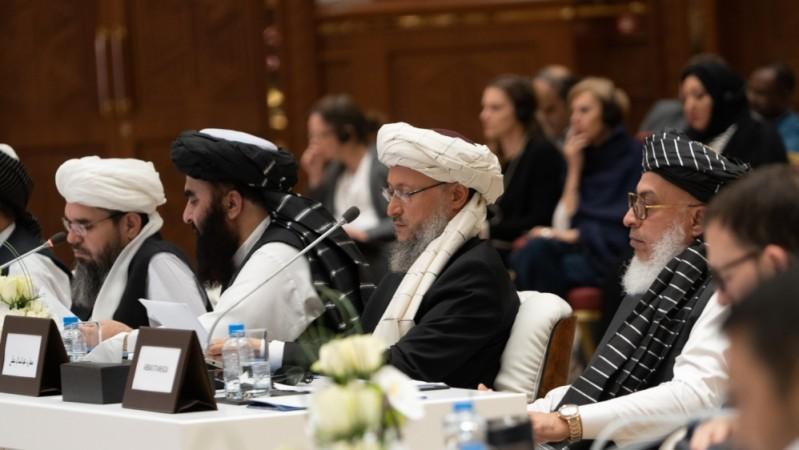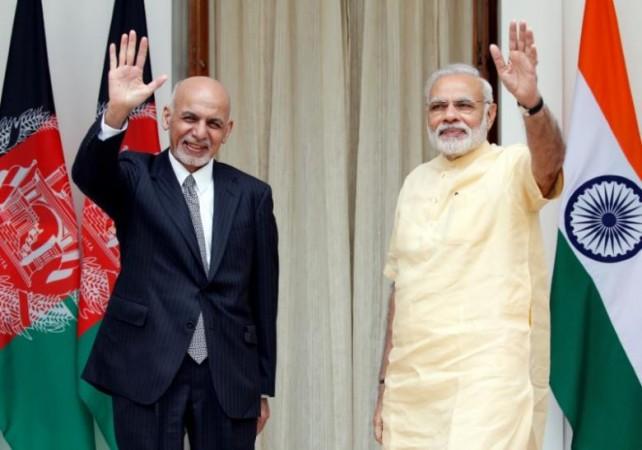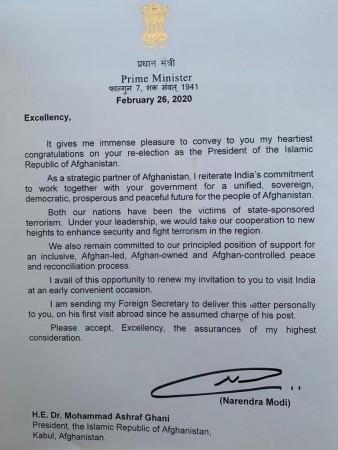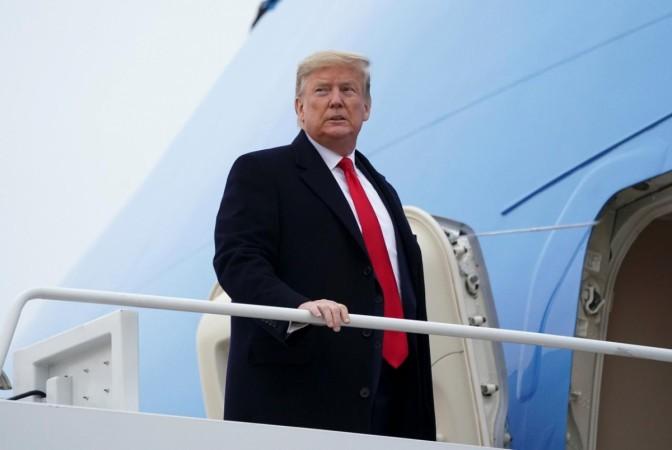India is set to attend the signing of the peace agreement between the United States and the Taliban in Qatar's capital Doha on Saturday, February 29. Indian envoy to Qatar, P Kumaran will represent the country at the event. This will be the first time India will officially attend an event associated with the Taliban.
Foreign Ministers and representatives from almost 30 countries and international organisations have arrived in the Qatari capital of Doha to witness the signing of the historic US-Taliban peace deal on Saturday, which comes after 18 months of negotiations between the two sides.

India's envoy to Qatar, P Kumaran to attend ceremony
India has been a key stakeholder in the peace and reconciliation process in Afghanistan. However, New Delhi is apprehensive of what the US-Taliban deal means to regional stability.
The deal could be the first step towards resetting Afghanistan's future as US Secretary of State Mike Pompeo is set to witness the signing of the agreement on a withdrawal of American troops and prepare the ground for a political settlement between the warring sides.
India has always believed that negotiating with the Taliban, a terrorist group, is against the country's policy. But on Tuesday, US President Donald Trump said he spoke to Prime Minister Narendra Modi regarding the peace deal and noted that everybody is "happy" about it. "I spoke to PM Modi on it. I think India would like to see it happen. We are pretty close. Everybody is happy about it," Mr Trump said at a press conference in Delhi.

PM Modi writes to Afghan President Ashraf Ghani
A day before the deal, Foreign Secretary Harsh Vardhan Shringla travelled to Kabul and met Afghan President Ashraf Ghani, handing over to him a letter from PM Modi. He also met other top Afghan officials.

"Foreign Secretary conveyed India's support to government and people of Afghanistan in their efforts to bring peace and stability through an inclusive & Afghan-led, Afghan-owned & Afghan-controlled efforts," Foreign Minister Raveesh Kumar said in a series of tweets.
Other world leaders to attend the US-Taliban peace deal

Ahead of the signing of the deal, the US and the Taliban had agreed to a seven-day cooling-off period which passed peacefully. The truce came last Friday night.
While US Secretary of State Mike Pompeo will attend the signing in Doha, American Defence Secretary Mark Esper and NATO Secretary-General Jens Stoltenberg will be in Kabul on Saturday, according to presidential spokesman Sediq Sediqqi, who said the two key officials will announce a joint declaration with President Ashraf Ghani.
"Afghanistan is moving towards peace and reconciliation. So, tomorrow can set the tone for an inclusive intra-Afghan dialogue."
Uzbekistan's Foreign Minister Abdulaziz Kamilov said he remains optimistic about the Afghan peace process, and that there was a need to work together to address the problems in the war-torn country, as also due to its regional importance.
"Uzbekistan is the immediate neighbour of Afghanistan and over the past many centuries, we had very close humanitarian culture, economic ties with Afghan people.
"We have to work together to bring peace and stability to Afghanistan because this is in the common interest of all people of our common region," he told TOLO News.
Trump urged Afghan people to "seize this opportunity for peace and a new future"
In a statement released by the White House on Friday, US President Donald Trump said: "If the Taliban and the government of Afghanistan live up to these commitments, we will have a powerful path forward to end the war in Afghanistan and bring our troops home," Xinhua news agency reported.
Trump urged the Afghan people to "seize this opportunity for peace and a new future" for their country, saying that "ultimately it will be up to the people of Afghanistan to work out their future".
US-Taliban peace deal
![Taliban want 'non-military' solution to Afghan problem, says negotiator. In pictures: Taliban militants. [Representational image] Taliban](https://data1.ibtimes.co.in/en/full/627666/taliban.jpg?h=450&l=50&t=40)
In the Qatari capital of Doha, America's top diplomat will stand with political leaders of the Taliban, Afghanistan's former rulers who sheltered Osama bin Laden and his militant network until 2001 as he plotted and conducted the 9/11 attacks.
- The peace deal includes a timeline for a conditions-based and phased US forces withdrawal, the commencement of intra-Afghan negotiations and the Taliban's commitment not to assist terrorists
- The signing of the deal that will pave way for US troop numbers to drop to 8,600 from about 13,000.
- Reduction in violence pledge: A condition that will be assessed by the United States. But prospects for war-torn Afghanistan's future are uncertain.
- The agreement sets the stage for peace talks involving Afghan factions, which are likely to be complicated.
- A six-member delegation from the Afghan government, entirely chosen by President Ghani in Doha to meet with the Taliban right after the deal signing.
- Under the deal, the Taliban wants 5,000 fighters to be released from Afghan-run jails, but it's not clear whether the Afghan government will agree.
- US and Afghan governments accept all the conditions laid down by the group that controls about 40% of Afghanistan
- There are also questions about whether Taliban fighters loyal to hardline Islamist splinter groups will be willing to adhere to the reduction in violence agreement.
- Sources in the Taliban earlier this month said they were prepared to launch a spring offensive and had recruited more than 6,000 fighters and suicide bombers if the agreement collapses.
















